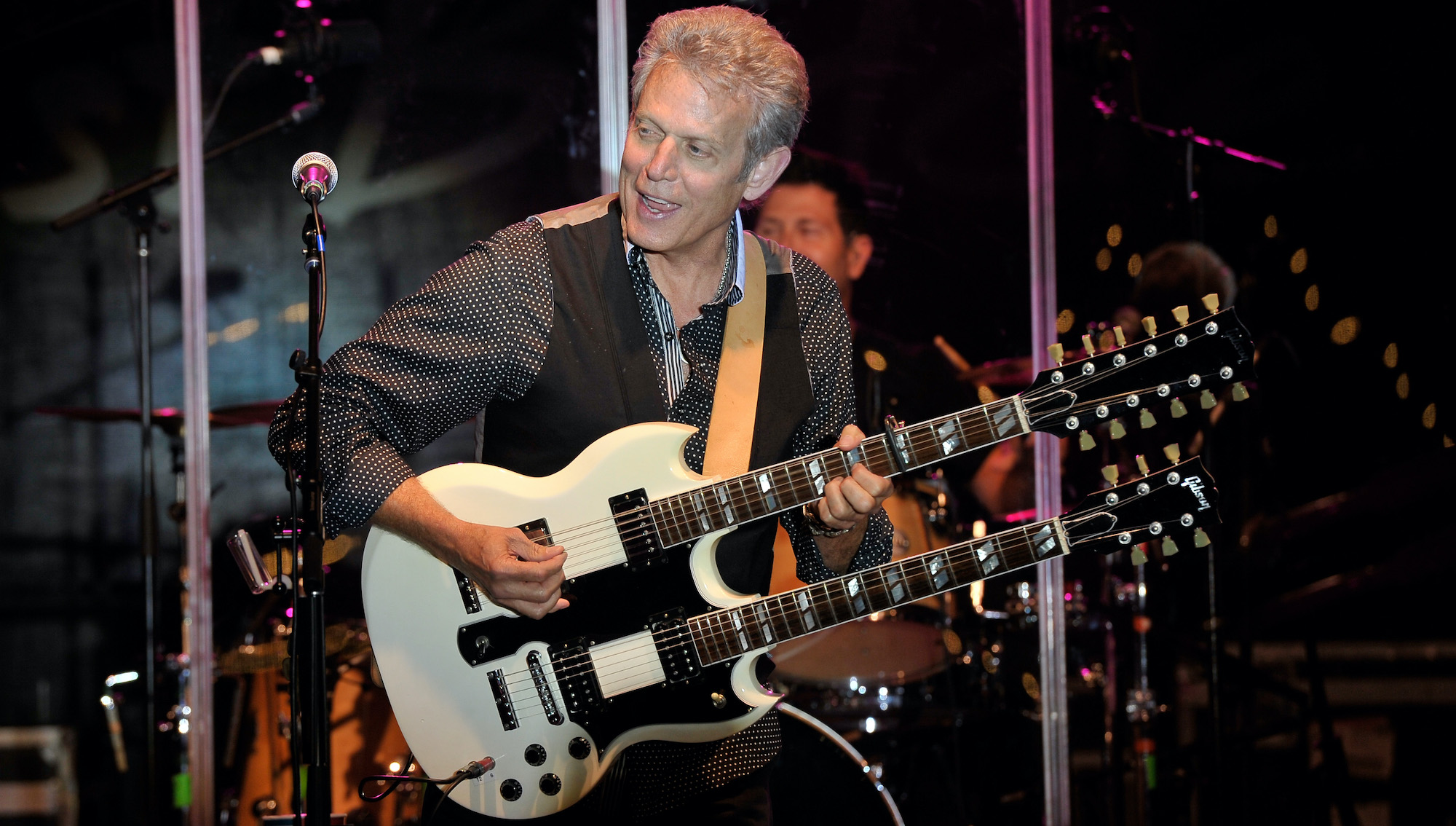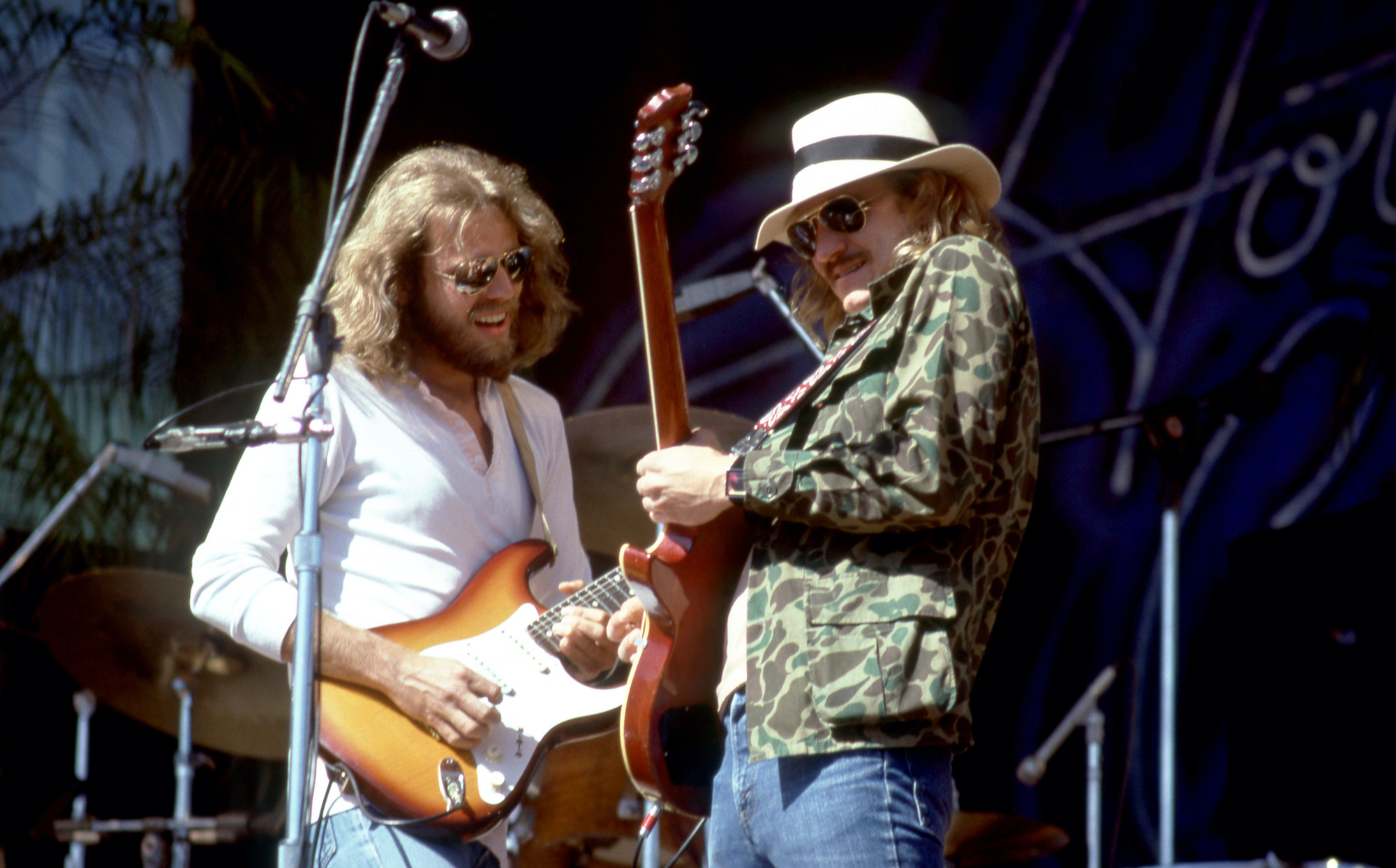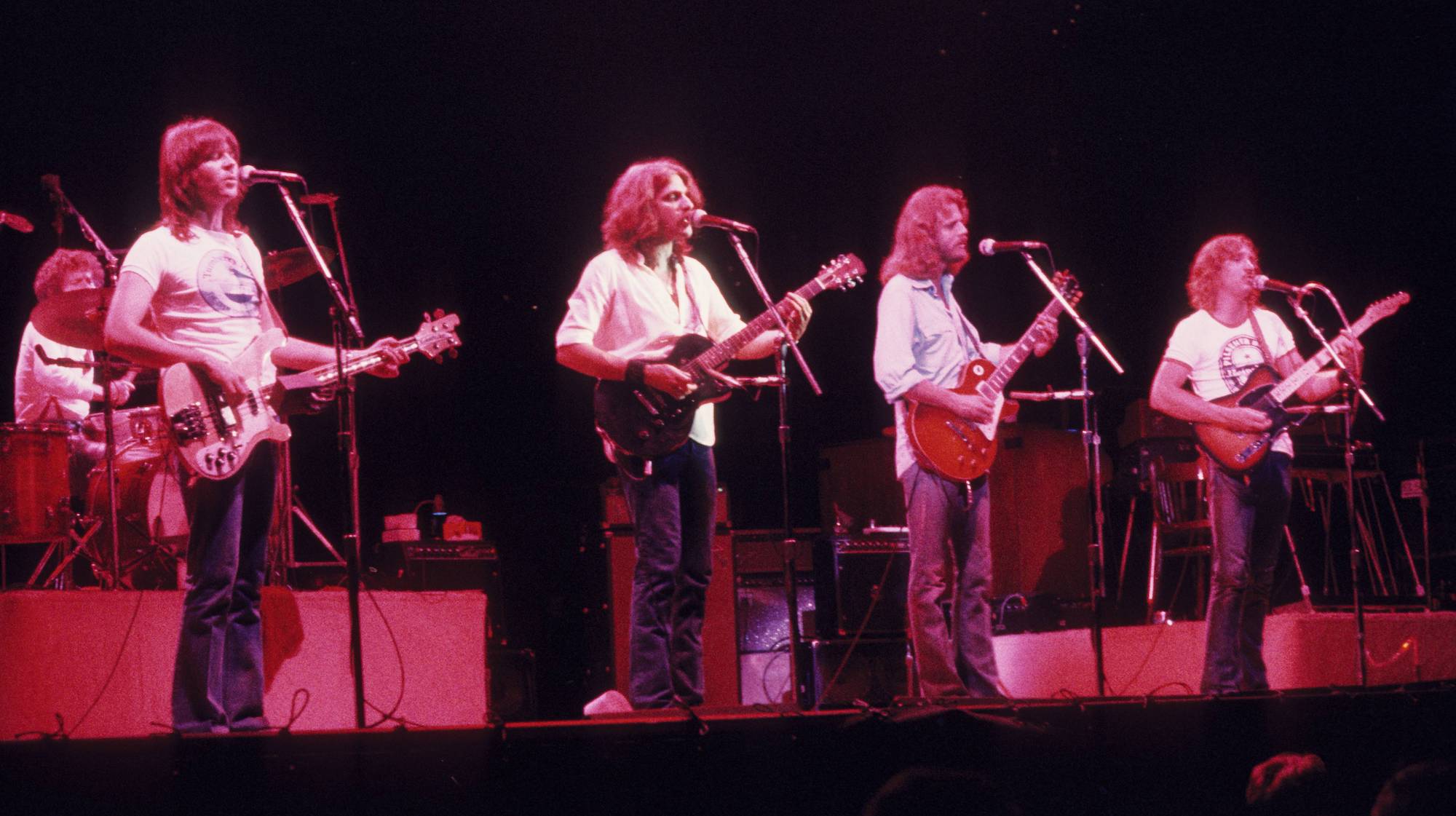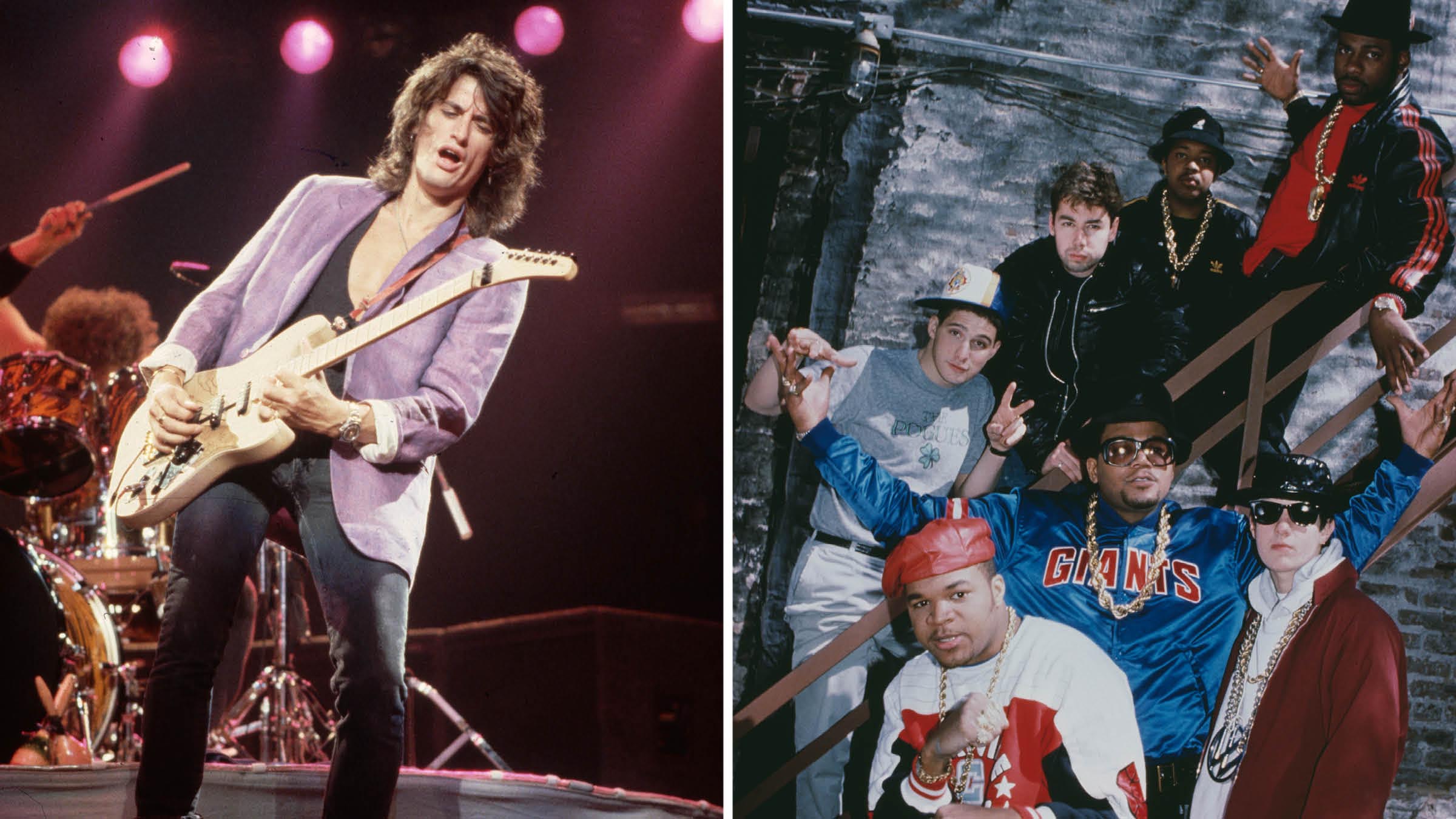Don Felder: "The Eagles never played three Les Pauls. It just turns into a big train wreck"
In this 2013 GW interview, the former Eagles man reveals the gear behind his tone on Hotel California and One of These Nights, and how a lesson from Duane Allman transformed his playing

All the latest guitar news, interviews, lessons, reviews, deals and more, direct to your inbox!
You are now subscribed
Your newsletter sign-up was successful
This Dear Guitar Hero feature with former Eagles guitarist Don Felder first appeared in the February 2013 issue of Guitar World.
You grew up in Florida around Duane Allman, Tom Petty, members of the Eagles and other famous musicians. What was in the water in that part of the state? – Damien Linotte
"Don’t forget Stephen Stills and I had a band in Gainesville called the Continentals when we were 15. And, of course, you had Lynyrd Skynyrd in Jacksonville. I don’t know if it was something in the water or something we were smoking, but yeah, an unusual number of people from there went on to be Hall of Fame artists. We all kind of learned from each other.
"Tom Petty was one of my guitar students, I knew Duane, and Stephen and I had a band. When he left, Bernie Leadon moved to Gainesville. His father was a nuclear physicist who was sent to the University of Florida to start their nuclear research facility, so he and I became friends. He taught me bluegrass guitar, mandolin and banjo. We had a bluegrass band and a cover band. Everybody influenced everybody. If you’re gonna steal, steal from the best – or at least the best people around you."
Exactly what guitars and amps did you use on Hotel California? – Christopher Thumann
"The acoustic guitar in the intro is a Takamine 12-string with a DeArmond pickup. We miked the acoustic and put that in the center of the mix. Then we took the pickup’s output and ran it though an Echoplex and a Leslie. We miked that in stereo so it has this left-to-right kind of swirling, ethereal characteristic.
"It’s blended in with the direct acoustic as well. As for electric guitars, I used my ’59 Les Paul into a narrow-panel Fender Tweed Deluxe, just kinda cranked up, with just the guitar into the amp."
All the latest guitar news, interviews, lessons, reviews, deals and more, direct to your inbox!
Do you still own and use your ’59 Les Paul? – Victor LoSquadro
"Yes, I used it on my new album, Road to Forever, but I generally keep it locked away pretty carefully in a secure location. Also, my original EDS-1275 double-neck is in the Rock and Roll Hall of Fame in Cleveland. On the road, I use Gibson’s reissues of both guitars. Gibson did an incredible job reproducing them."
Who kicks off the guitar solo in Hotel California, and how did you go about making each solo guitar part stand out in the mix? – Russell Finch
"I start the solo. Being in a band with three guitar players, one thing you need to do is learn to make each guitar voice sound separate and identifiable. I played a Les Paul and Joe [Walsh] played a Telecaster so that the two voices, when they spoke, had different qualities and tonalities.
"On every record we did back then, regardless of what I played, the other guys would play different guitars. We never played three Les Pauls. It just turns into a big train wreck."

Who was your biggest influence as a slide player? – John Kirchner
"The first person I ever saw play electric slide was Duane Allman. We grew up in north central Florida together, and he and Gregg used to come to the University of Florida on the weekends as the Allman Joys. Duane and Gregg would play these fraternity parties, and we got to know each other there.
"During the summer, when the university was out, we would go to Daytona Beach and play the bars, the pier, dance clubs. When we got done playing, we’d grab breakfast at one or two in the morning, and we’d wind up at Duane’s mother’s house in Daytona.
"I remember sitting on the floor with him, and he started playing slide. I said, 'You have to show me how to do that.' He showed me the basic tunings and positions. I took that and molded it into my own approach to playing slide. I never like to copy someone and sound like them. I don’t want to be Stevie Ray Vaughan, Duane Allman or Jimi Hendrix. The art is to find your own voice. But Duane was my main influence."
How has your signal chain changed over the years? – Don Maue
"I try to keep my signal chain as clean as possible. A lot of people think the bigger the pedalboard, the more impressive it is and the more sounds you have access to. But to me, the more circuits you run your signal through, the lower the quality of your final output when it hits the amp. The most I ever use is three pedals – a delay, a Fulltone OCD and a Boss Chorus. Also, I prefer a cable when I’m recording, but onstage I use a new Line 6 wireless unit, mostly for flexibility."
How did you get that incredible guitar sound on One of These Nights? – Craig Dees
"That’s the ’59 Les Paul into the narrow-panel Tweed Deluxe again. That amp has a very unique sound. I have about six of them, but that particular one has a real sweet spot, because of the speaker and the way it’s wired.
"The combination of the ’59 Les Paul and the Tweed Deluxe is a very common sound of mine. Line 6 wanted to take that amp and make an emulation of it, and I said no because I don’t want everyone to sound like me. I have to keep my tone kind of separate and secret."
Do you have any type of practice regimen? – Matt Bryant
"I don’t sit down and practice scales, per se, but I have a series of warm-ups I do before every show or before I start recording. It includes some scales – whole tone and chromatic scales – that just kind of get my hand loosened up. But the beauty for me is to be able to create. Once you know how to type 60 or 70 words a minute, it’s not how fast you can type, it’s what you write that’s important.
"I think I’ve developed enough dexterity on the instrument that I can write and play the ideas that I have. To me, that’s the true fun of it – to be able to use that dexterity in the studio to create new approaches and new sounds."
What can you tell me about Gibson’s reissues of your EDS-1275 double-neck and ’59 Les Paul? – Harold Godwinson
"They’re just incredible. I use them on the road because they feel so much like my originals, right down to the stains, rust and tarnish. When I pick them up, they feel like my guitars. Seriously, when I put both guitars side by side, I have a hard time telling them apart. Even all the scratches and nicks are there.
"When I went to Gibson’s Custom Shop, they had Billy Gibbons’ Les Paul there. I asked them, 'How do you put these scratches in? They look so identical.' They opened a drawer and took out a rhinestone Elvis Presley belt buckle and said, 'This is what we use.' I said, 'You have to use that on my guitar!' Elvis inspired me to play music when I was 10 and I saw him on The Ed Sullivan Show."
I know about the lawsuit that led to you no longer being in the Eagles, but do you ever see or speak to other members of the band? – Jeff Isom
"I have great relationships with Bernie Leadon and Randy Meisner. I saw Randy about two months ago, and I just called Bernie on his birthday. Randy was a dear friend of mine during the Eagles and has remained so.
"Everybody else – Don Henley, Glenn Frey, Timothy B. Schmit and Joe Walsh... as much as I love Joe and think the world of him as a player and a person, we have little to no direct contact. Every time I communicate with them or try to reach out, the only return communication I get is from their attorney. It’s sad, but that’s the reality."

Are there any plans in the works to form a band with other former members of the Eagles, even as a studio project? – Chris Nolan
"At one point, Bernie and Randy and I were talking about putting together a group. In the interim between the period when the Eagles hit the “hold” button – I think it was ’81 or ’82 through ’94 – Timothy B. Schmit and I put together a band with Paul Carrack and Max Carl, who’s in Grand Funk Railroad now.
"We got together at my studio in Malibu and recorded 10 or 12 songs we’d written together, one of which wound up becoming Love Will Keep Us Alive, which was on the Eagles’ Hell Freezes Over record.
"Anyway, Randy, Bernie and I have talked about doing it, but there are a few problems involved. Bernie doesn’t play very much anymore; he’s kind of semi-retired from the music business. Meanwhile, Randy has some health issues. He was in a group recently but had to stop doing that because of his health. I think that option is quickly expiring."
Why was there a span of about 30 years between your solo albums? – William Westhoven
"The Eagles machine is all encompassing. All the energy I could muster went into preparing for tours, being on tour and writing while we were on the road. So when that was going on in ’94, when we resumed the band, it was difficult to think about doing anything else.
"When I left the band, in 2001, I went through a process for several years of trying to find my center, where I was, how I’d gone from this little impoverished circumstance in Gainesville on a dirt road to being in a really big rock band – and then not anymore. I started doing meditations and wound up writing a book, Heaven and Hell: My Life in the Eagles.
"While looking back, I came up with a lot of experiences I wanted to write into song. The new album, Road to Forever, is an encapsulation of those feelings and emotions. That took a couple of years.
"So it took a while to get my feet underneath me after leaving the Eagles and going through a divorce from a marriage of 29 years, writing the book and getting around to realizing that the one thing that was missing in my life was playing music and getting back in the studio."
What do you feel is your finest recorded moment as a guitarist? – Arne Sultan
"Certainly, my most surprising recorded moment is Hotel California. I never really believed it would be a single. It was too long. In the Seventies you had to have a dance track or a ballad, and It had to be three and a half minutes long. The vocal had to come in within 30 seconds.
“Hotel California was just the wrong format for Seventies AM radio. Don said, 'That’s gonna be our single.' I said, 'Don, I think you’re wrong.' He said, 'Nope, that’s our single.' It’s one of the few times in life that I was so happy to be so wrong."

Damian is Editor-in-Chief of Guitar World magazine. In past lives, he was GW’s managing editor and online managing editor. He's written liner notes for major-label releases, including Stevie Ray Vaughan's 'The Complete Epic Recordings Collection' (Sony Legacy) and has interviewed everyone from Yngwie Malmsteen to Kevin Bacon (with a few memorable Eric Clapton chats thrown into the mix). Damian, a former member of Brooklyn's The Gas House Gorillas, was the sole guitarist in Mister Neutron, a trio that toured the U.S. and released three albums. He now plays in two NYC-area bands.



